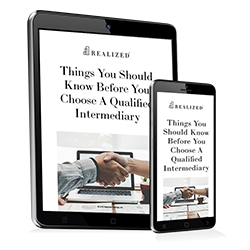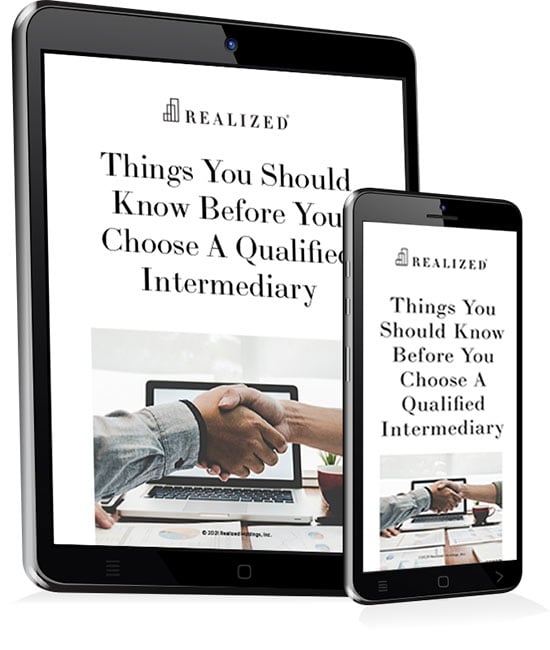
Many changes can take place during the 1031 exchange process. Perhaps the deal falls through on the identified property, or the exchanger decides not to move forward with the exchange altogether. Whatever the case may be, the next question an exchanger will inevitably ask is: when can I get my money back?
In short, there are fairly hefty violations in place that restrict when a Qualified Intermediary can release the funds being held in the exchange account. This is something that most exchangers find rather surprising, and they may feel that the Qualified Intermediary is holding back the funds illegally or out of spite. According to U.S. Treasury Regulations Section 1.1031(k)-1(g)(6) – which is commonly just referred to as “g(6)” – the taxpayer cannot “receive, pledge, borrow or otherwise obtain the benefits of money or other property before the end of the exchange period.”
For an exchanger to move forward with a 1031 exchange, they must abide by certain regulation requirements (also known as ‘safe harbor’ requirements) related to working with a Qualified Intermediary. One of the safe harbor requirements states that a written exchange agreement must be drawn up between the Qualified Intermediary and the exchanger. The document must state, among other things, that the exchanger will not receive the funds until the end of the exchange period, regardless of the circumstances. If the written exchange agreement does not include these g(6) limitations, the Safe Harbor is not satisfied, and the intermediary is not considered a "Qualified Intermediary."
To expand on that, here are some of the restrictions surrounding when the funds can be released, according to the IRS:
- (As a reminder, an exchanger has 45 days to identify a replacement property when conducting a 1031 exchange). The funds cannot be released during the 45-day identification period, even if the exchanger decides that they do not want to move forward with the exchange. If the exchanger does not move forward with the exchange and does not identify a replacement property, the funds may be returned to them on the 46th day.
- (An exchanger has 180 days to close on the replacement property when conducting a 1031 exchange). If an exchanger has made any replacement property identifications, the funds cannot be returned during the 180-day exchange period, even if the taxpayer decides not to close on a replacement property. After the 180 days are up, the exchange proceeds may be returned on the 181st day.
- The funds may also be released if a major event occurs that is out of the exchanger’s control, such as a zoning change, regulatory approval, or destruction of the property (due to a natural disaster, etc.).
- An exchanger may designate an amount of funds that they do not intend to reinvest and wish to take out of the exchange. This amount must be specified in the Exchange Agreement with the QI before closing on the relinquished property.
It is important to note that if you do not move forward with the 1031 exchange, the funds you receive from your Qualified Intermediary (commonly referred to as “boot”) will be subject to capital gains tax and depreciation recapture taxes.
What are some other scenarios in which I can get my money back?
If the taxpayer identifies two or more replacement properties during the 45-day identification exchange period but only chooses to purchase one, the remaining funds will need to sit in the exchange account until the 180-day exchange period is over.
If you most-likely anticipate only purchasing one property, your Qualified Intermediary will typically suggest that you make that clear during the 45-day identification period.
What happens if the Qualified Intermediary does not follow the regulations?
As the taxpayer, it may be frustrating not to get the funds back immediately. You chose not to move forward with the exchange, and you are prepared to pay taxes on the funds, so why must the Qualified Intermediary hang onto the money for several weeks (or even months)? If the Qualified Intermediary does not follow these regulations, the IRS will consider them to be an “agent” of the exchanger, and agents are disqualified from acting as Qualified Intermediaries. If the Qualified Intermediary chooses to give you the funds before they are supposed to, they could jeopardize all of the other 1031 exchanges that they are working on with all other clients.
Conclusion
Although it may be frustrating that you cannot access funds immediately upon canceling a 1031 exchange, these rules must be strictly adhered to, per strict regulations laid out by the U.S. Treasury. If the restrictions surrounding g(6) are still confusing during your exchange, it is strongly recommended to consult your Qualified Intermediary for additional clarification. They should be able to provide clear insight as to when you will be receiving the funds.
IRC Section 1031 is a complex tax concept. Realized does not offer legal or tax advice. Please consult your legal or tax professional regarding the specifics of your particular situation.
Information is based on data gathered from what we believe are reliable sources. It is not guaranteed as to accuracy, does not purport to be complete and is not intended to be used as a primary basis for investment decisions.



